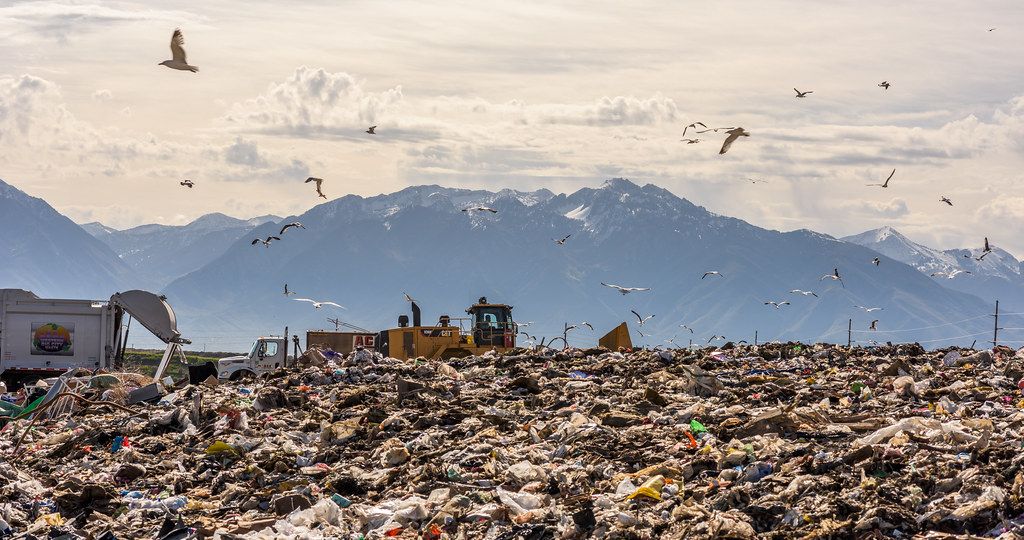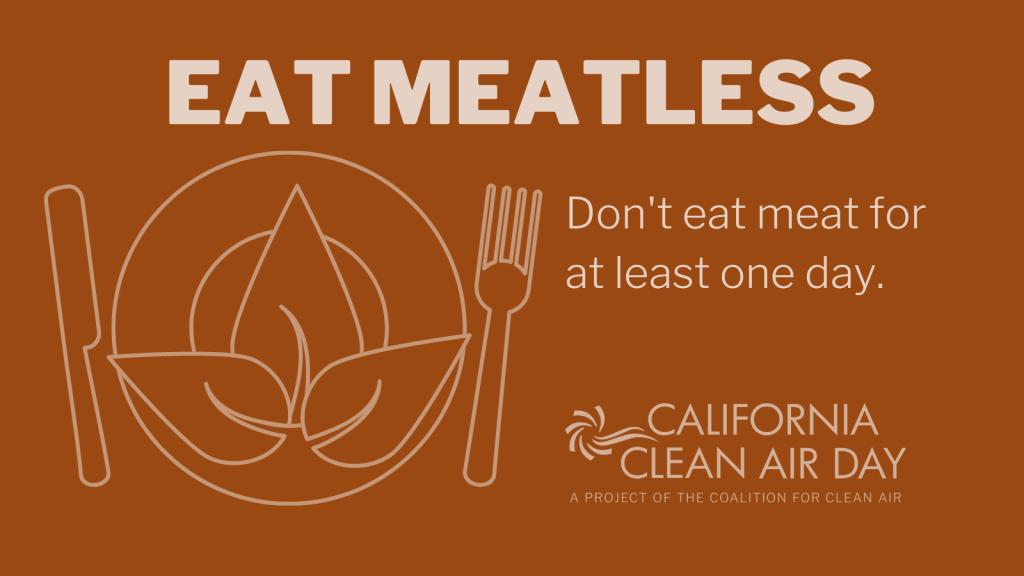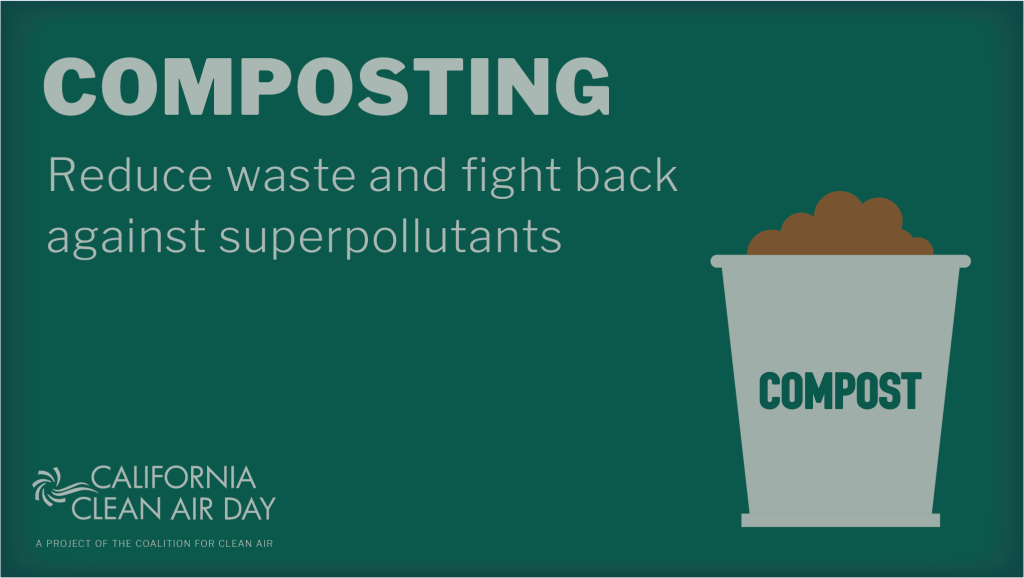
Not all emissions are created equal. Methane is 25 times more potent than carbon dioxide, which is why it’s now being called a super pollutant in the fight against climate change.
Although it comes from many sources, the primary culprit is organic matter. Most landfill content is organic materials: food scraps, yard trimmings, junk wood, wastepaper. Unable to decompose as they would in a natural environment, these organics produce biogas, which includes methane.
We added “compost your food or engage in a composting program” to the Clean Air Pledge this year to complement “eat no meat for at least a day” after a seminal U.N. report found that immediate reductions in methane emissions are the best, swiftest chance the planet has at slowing climate change. Our waste haulers are on board with this: “We encourage our customers throughout California to participate in food diversion programs to keep organics out of landfills,” says Doug Concoran of Waste Management, “Join us in being a part of the cleaner air solution!”
Let’s dig in on the ways you can be a part of the effort to fight back against super-pollutants.
Eat no meat for at least one day.
Meatless Mondays may sound like a slogan, but it has the potential for real impact. If the world reduced meat consumption by 15%, it would be the equivalent of taking 240 million cars off the road each year. Red meat is particularly harmful not just for the plant, but for your health: one daily serving — about the size of a deck of cards — was associated with a 13% increased risk of death from cardiovascular disease or cancer.
If you’re challenging yourself to eat an entire day of meatless meals, our tip is to have fun with it. Here’s 30 days of recipes from Penelope Wall who says it also saved her a good amount of money.

Engage in a composting program.
Separating food and garden waste may sound like a hassle, but it’s not as hard as you may think. Especially in an apartment, however, it does require some thought. Start by checking out resources from your local garbage collector or farmer’s market.
“Just by collecting food scraps in your kitchen pail and then putting them in your organics container, helps mitigate methane emissions and supports cleaner air,” said Jessica Aldridge of Athens Services, “We’re working directly with our cities and customers to ensure that they have the resources they need to participate. We recommend people familiarize themselves with what is acceptable, how to use their pail, and some tips and tricks by going to ww.athensservices.com/in-the-news/food-waste-recycling”
Read more about composting here.

Switch out your stove
Did you know that the recently passed Inflation Reduction Act has rebates to swap out your stoves? Up to $840 will be available to swap out the methane-inducing natural gas stove! Wondering about inductive cooking? Check out our event calendar to find a demonstration near you.
Whatever you do, make it official! Take the Clean Air Pledge and plan to join us as we come together on or by October 5,2022 for the next California Clean Air Day!